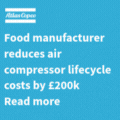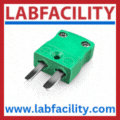
Posted to News on 27th Sep 2024, 09:06
Elevating process manufacturing with advanced process control
By leveraging real-time data analysis and predictive modelling, Advanced Process Control (APC) technologies enhance process stability, product quality and operational efficiency. Here Stephen Hayes, managing director of Beckhoff UK, explains how APC can significantly enhance operational performance, reduce variability and drive cost savings.

(See Beckhoff at FoodManufacturing.Live, 15 May 2025, on stand 53)
APC uses sophisticated algorithms and computer software to optimise the performance and efficiency of different industrial processes. Once up and running, APC systems can help predict future process behaviour and optimise operational parameters by making real-time adjustments. Today, APC can be found in industries spanning chemical, pharmaceutical and general manufacturing - and is serving a crucial role.
To support industrial control systems, Beckhoff launched its TwinCAT suite of automation tools and components. It provides instruments to turn almost any PC-based system into a fully-fledged supervisory control and data acquisition (SCADA) system. TwinCAT can transform almost any PC-based system into a real-time control complete with multiple programmable logic controllers (PLCs), numerical control (NC), computer numerical control (CNC) and/or robotics runtime systems.
APC serves as a communication hub between system-level controls, subsystems such as instruments and sensors, and the equipment itself. Each real-time controller within the APC system drives a specified controlled variable to its desired set point, ensuring all parameters are at the required levels.
Improved efficiency
According to a UK Government survey, over six in ten (66 per cent) of manufacturers have taken steps in the past five years to improve energy efficiency, with methods including building improvements (47 per cent), behavioural and cultural changes (27 per cent) and replacing industrial equipment (24 per cent). Another option is improving process control and keeping a tighter grip on production parameters.
Parameters at the machine level may include temperature, exposure and pressure, with platforms TwinCAT Analytics capable of capturing, storing, and monitoring data on these. Then, users can derive an optimisation potential for the various processes and machines before integrating these into the production process.
By adjusting these parameters on the factory floor, APC can help improve production performance, yield, throughput and flexibility in real-time. Take semiconductor manufacturing, for example. It relies on fixed, efficient production, which requires tight process control - a level of control that's only achievable by using complex software and algorithms. Semiconductor plants use drive modules to facilitate wafer production, which APC can control the speed of. Adjusting the motor speed according to production demand can help reduce energy consumption and avoid premature wear and tear by ensuring the drive doesn't run at excessive speeds for long periods.
Importantly, APC helps minimise process drive, shift, and variability and, in doing so, increases process capability and reduces product scrap. The same Government survey found that 99 per cent of large manufacturers monitor their energy usage, so investing in APC tools means they can act on the results and make a positive change.
In the case of TwinCAT, it supports modular extensions, meaning functional changes and additions can be made at any time. Therefore, the openness of the control system not only allows the integration of third-party components, but also customised retrofits for existing machines and system - ensuring flexibility and investment protection.
Consistency and quality
In process manufacturing, consistency is vital for converting raw materials into robust, high-quality products - whether it's food and beverage, pharmaceuticals or cosmetics. Returning to semiconductor production, manufacturers must be able to align the mask with the utmost precision. This means repeatedly placing the mask over the same location as the chip goes through multiple rounds of lithography.
APC platforms like TwinCAT allow manufacturers to improve their control over a wide range of process parameters, helping them weed out inconsistencies and anomalies. For example, in the food and beverage industry, APC can control fermentation conditions, such as temperature, pH, and oxygen levels. It can also standardise packaging operations, such as filling, sealing and labelling to reduce waste - a key concern for the industry. Similarly, it optimises purification processes, such as chromatography and filtration, to remove impurities and recover the desired product.
In all cases, real time data analytics provide manufacturers with actionable insights, so they can make informed decisions and quickly address any production issues by adjusting key parameters. Consequently, APC can improve product yield and quality, optimising production and keeping customers happy in the process.
APC technologies are the unsung hero of production efficiency and quality. Using real-time data analysis, predictive modelling, and other complex algorithms, APC can fine-tune operations to streamline performance. This can have significant pay-offs, including process stability, higher-quality products, and operational efficiency. Meanwhile, opting for open, PC-based control technology such as TwinCAT can further support manufacturers by protecting their APC investment.




